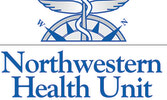Increase in Invasive Pneumococcal Disease (IPD)
Northwestern Health Unit - Special to The Bulletin
Streptococcus pneumoniae is a type of bacteria that can cause infections in different parts of the body, including sinuses, ear, lungs, bloodstream, and brain. When it infects the bloodstream and brain, it is called Invasive Pneumococcal Disease (IPD), which can lead to brain damage, blood stream infections, or even death.
An increase in the number of cases of IPD in the Northwestern Health Unit (NWHU) catchment area was noted in late winter and early spring. The rate of invasive pneumococcal disease is 3x higher in NWHU catchment area than Ontario as a whole.
Invasive pneumococcal disease (IPD) is most common in the very young (children under age 2) and the elderly (those 65 and older), and people that have certain medical conditions that put them at increased risk for IPD.
Invasive Pneumococcal Disease is preventable through vaccination. Immunization for IPD is given through routine childhood immunizations, as well as to those 65 and older, and those at high risk.
You may also be at high risk for IPD if you:
• have a cochlear implant
• have a weakened immune system or are immune suppressed
• have chronic organ disease (such as kidney, liver, lung or heart disease)
• have certain other chronic conditions (such as diabetes)
• have a non-functioning or missing spleen
If you or someone you know may be at risk, please talk to your health care provider or call your local NWHU for more information on the pneumococcal vaccine.
For more information, visit:
• Caring for Kids – provided by Canadian Pediatric Society
• Public Health Agency of Canada – Invasive Pneumococcal Disease
In January of 2023 a group of volunteers from the Sioux Lookout Anglers and Hunters, the Ministry of Natural Resources), and the Sioux Lookout Chamber of Commerce got together to discuss how we could work together to put the red and green markers back...



